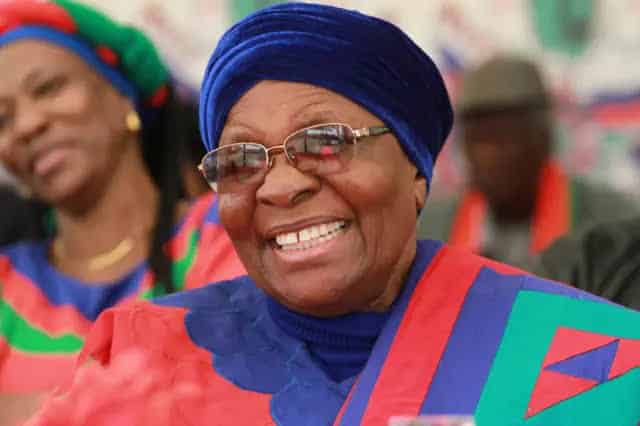Namibia’s ruling SWAPO party has secured victory in last week’s contentious elections, marking a historic moment as Vice-President Netumbo Nandi-Ndaitwah becomes the country’s first female president.
The results, however, remain disputed by the main opposition.
The Electoral Commission of Namibia (ECN) announced that Nandi-Ndaitwah, 72, captured just over 57% of the votes, while her closest rival, Panduleni Itula of the Independent Patriots for Change (IPC), garnered 25.5%.
Despite the outcome, the IPC has rejected the results, citing irregularities and logistical challenges during the voting process.
Nandi-Ndaitwah, a long-serving SWAPO figure, takes the reins of the resource-rich nation, which has been under SWAPO’s rule since its independence in 1990.
Her leadership signals a new chapter as she becomes one of the few women leaders on the African continent.
The election, held on November 27, faced significant logistical issues, including ballot paper shortages and technical problems with electronic voter registration devices.
These challenges led to extended voting days and lengthy queues, with some citizens abandoning the process after waiting for up to 12 hours. The IPC has labeled these issues as deliberate attempts to disenfranchise voters and has vowed to challenge the election results through legal avenues.
The southern African human rights lawyers’ group, which monitored the elections, also criticized the widespread delays, describing them as intentional.
The ECN has admitted to organizational shortcomings, including overheating of electronic devices and insufficient ballot papers, but defended the overall process.
Voter turnout was high, with nearly 77% of the 1.5 million registered voters participating. The election was seen as a critical test for SWAPO, which faces growing dissatisfaction among young voters—a trend mirrored by other liberation-era parties in the region, such as South Africa’s ANC and Botswana’s Democratic Party, which have recently faced significant political setbacks.
Despite Namibia’s wealth in uranium and diamonds, much of its population of nearly three million has not seen the benefits, with youth unemployment soaring to an estimated 46% in 2018. Nandi-Ndaitwah has pledged to address these issues, promising to create jobs by leveraging economic diplomacy and attracting investments.
Known for her gold-framed glasses and consistent display of SWAPO’s blue, red, and green colors, Nandi-Ndaitwah has emphasized the experience and wisdom she brings to her new role.
As she takes office, she faces the challenge of uniting a nation divided by election controversies while delivering on her promises to drive economic growth and job creation.
